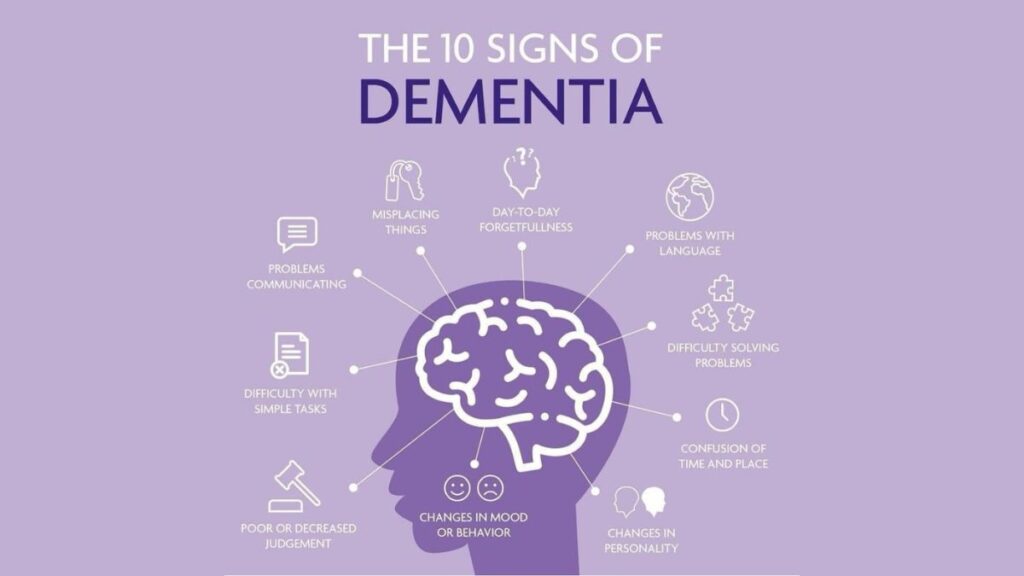Noticing changes in a loved one’s memory or behaviour can be worrying. While some forgetfulness is a normal part of ageing, certain symptoms may point towards something more serious. Identifying the early signs of dementia is the first step toward seeking support and managing the condition. These signs are often subtle at first and can develop gradually, making them easy to overlook.
Dementia affects each person differently, and not everyone will show the same symptoms. However, being aware of common early indicators can help families address concerns with a medical professional sooner rather than later. Early diagnosis provides access to information, guidance, and support networks that can improve quality of life.
Memory Loss That Affects Daily Life
One of the most common early signs of dementia is memory loss, particularly forgetting recently learned information. This is different from occasionally forgetting a name or an appointment and remembering it later. Dementia-related memory loss is more persistent and disruptive. For example, a person may ask the same question repeatedly, forget important dates, or increasingly rely on notes for things they used to handle themselves.
Someone in the early stages might struggle with their short-term memory, such as recalling what they had for breakfast, but have no problem remembering events from many years ago. They might also misplace common items like keys or a wallet and be unable to retrace their steps to find them. When these memory lapses start to interfere with daily routines, it is a signal that should not be ignored.
Difficulty with Planning and Familiar Tasks
A person with early dementia may find it hard to complete tasks that were once routine. This could include having trouble following a familiar recipe, managing monthly bills, or organising a shopping list. These activities require planning and concentration, which can become challenging. An individual may take much longer to do things than they did before or struggle with tasks that involve numbers.
You might also notice a loved one having difficulty with complex tasks that require organisation. For instance, planning a family visit might become overwhelming. This is not the same as needing occasional help with the settings on a microwave or a television remote. Instead, it is a consistent pattern of struggling with familiar, everyday activities.
Changes in Mood and Personality
Dementia can cause noticeable shifts in a person’s mood and personality. Someone who was once outgoing may become withdrawn and lose interest in hobbies or social activities. They might seem emotionally flat or apathetic, not wanting to go out or spend time with family and friends. In other cases, a person can become confused, suspicious, anxious, or easily upset, especially when they are outside of their comfort zone.
These changes can be subtle and sometimes appear even before significant memory problems do. A loved one might display poor judgement, for example when dealing with money, or pay less attention to their personal grooming. These behavioural shifts are often one of the first things family members notice, sensing that the person “just isn’t themselves anymore”.
Problems with Language and Communication
Difficulties with language are another common sign. A person with dementia may struggle to follow or join a conversation. They might stop in the middle of a sentence and have no idea how to continue, or they may repeat themselves. Finding the right word can become a frequent challenge. They might forget simple words or use the wrong ones, which can make their speech difficult to follow.
This is more than just occasionally being unable to think of a word. It is a persistent problem that affects their ability to communicate effectively. They might also have trouble understanding what others are saying, which can lead to them withdrawing from social situations to avoid frustration or embarrassment.
A Practical Example of Early Changes
Consider a man who has always been independent and organised. His family begins to notice small changes. He starts having trouble managing his finances, with bills going unpaid for the first time. He has difficulty following his favourite team’s matches and loses interest in his weekly card game with friends. During conversations, he often struggles to find words and repeats stories he just told. While driving to the local shop, a route he has taken for years, he gets lost and becomes very confused. These combined difficulties with planning, social withdrawal, and confusion in a familiar place are indicative of more than just normal ageing.
Observing these changes can be distressing, but it is an important first step. Recognising that these difficulties are symptoms of a potential medical issue allows families to seek the right help. Professional guidance can provide clarity and outline the next steps for getting a diagnosis and creating a supportive plan.
Arranging for an assessment can help determine the cause of these symptoms and open up access to valuable resources. For families looking for ways to support a loved one at home, there are options available. Many people find that specialist dementia care at home offers the support needed to maintain a sense of independence and wellbeing in familiar surroundings.







